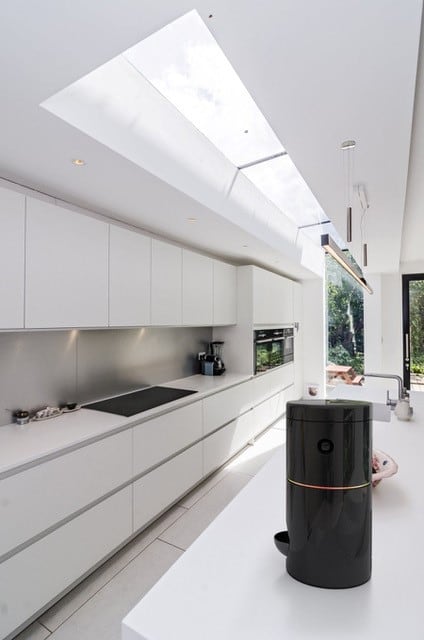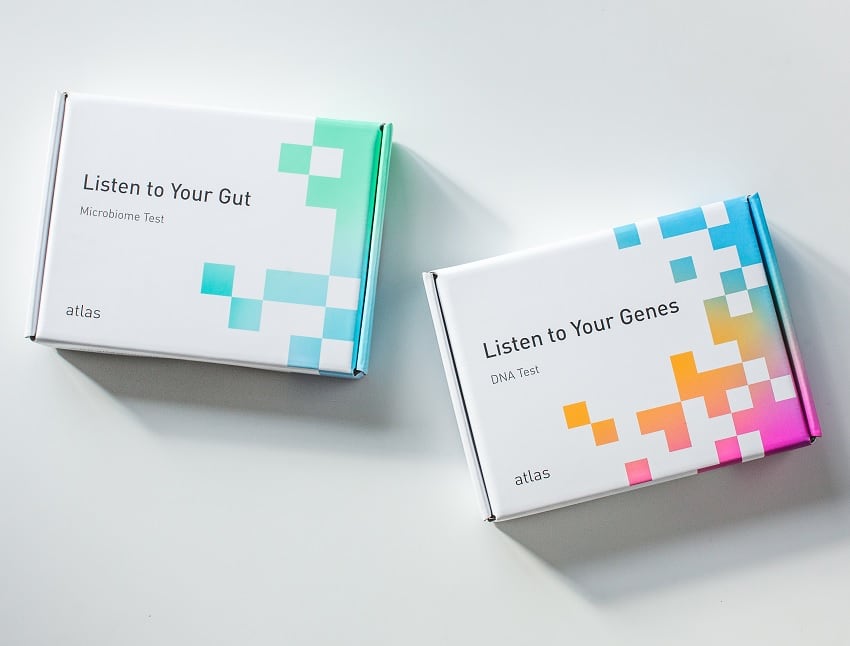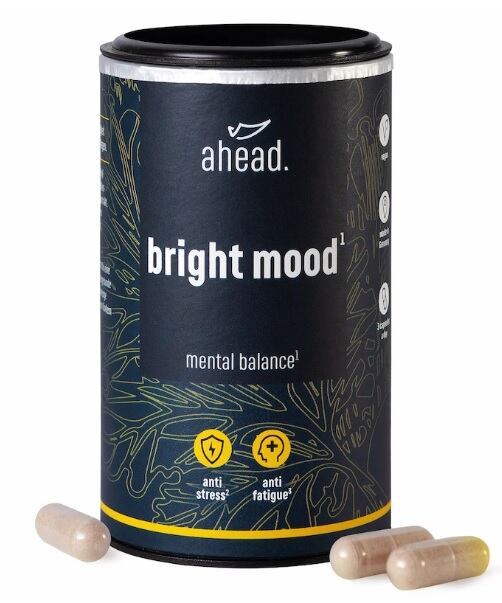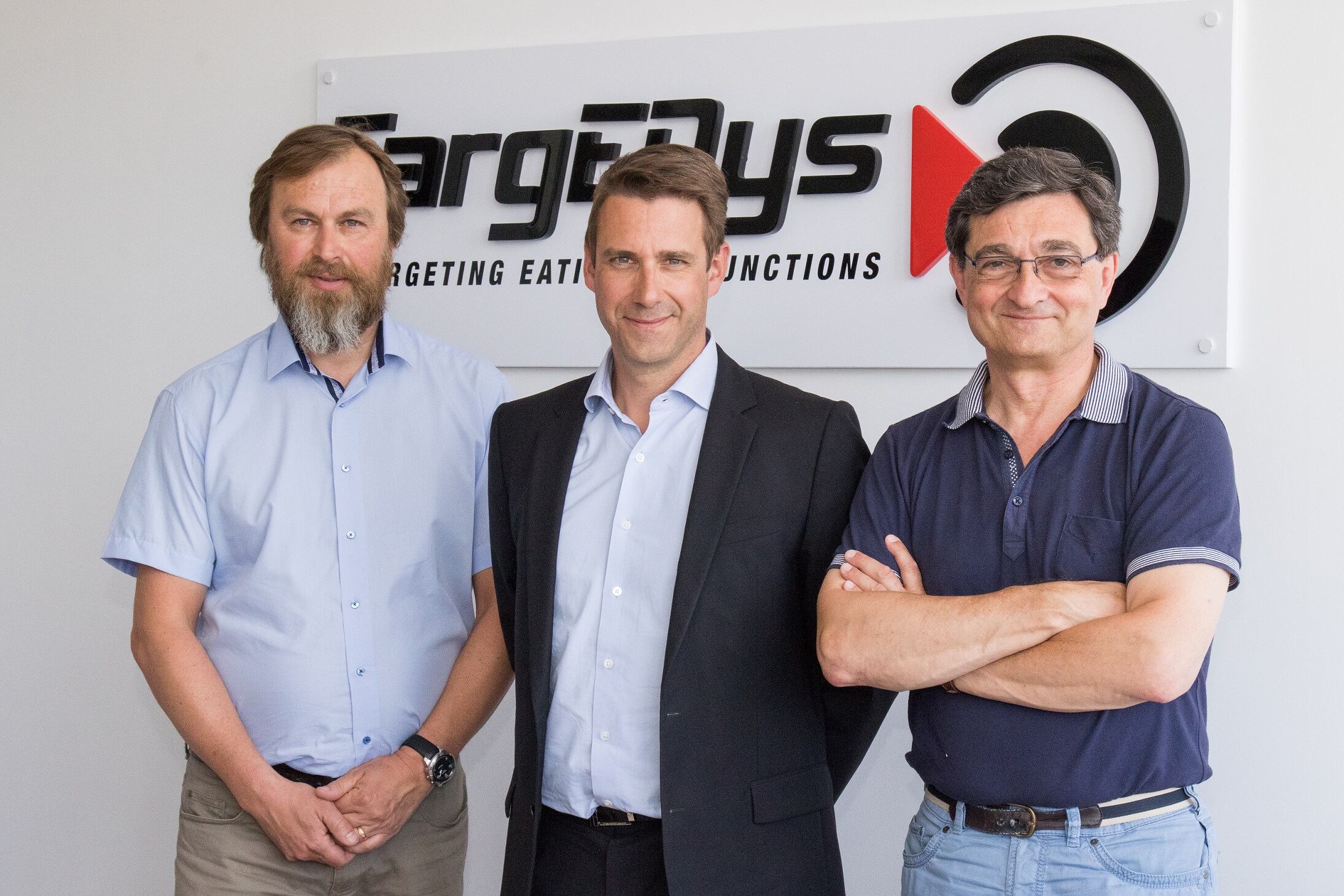Technological trailblazers
Many startups we spoke to this year have been staking their claim in the personalised nutrition space. But, when health tests are involved, one big
challenge is convenience.
MiNutra (right)

But Eric Hilton, CEO of NutraPharma Ltd, says his coffee machine sized MiNutra gadget takes away the lengthy process involved in current at-home deficiency testing kits.
“As far as revolutionary thinking goes, this piece of kit essentially is a lab and a manufacturing facility all on your kitchen counter," Hilton told NutraIngredients in the summer.The system allows consumers to perform a quick pin prick blood test and nutrient analysis to get their real-time recommended vitamins and minerals all from one machine on their kitchen counter.
“This takes away the need for any capsules or pills. You don’t have to go to the store, you don’t need to work out what you need or what you are missing.”
The other big challenge of personalisation is data protection. But Hilton has partnered with an insurance firm so he can guarantee to his customers that their data will not be shared.
The entrepreneur is currently working to get his gadget to a retail price of under £1,000 in order to make it commercially viable. His hope is that people will then purchase the product on a mobile phone style contract.
FoodMarble
In an effort to take that convenience factor one step further, former electrical engineer Aonghus Shortt has has co-founded the ‘world’s first’ portable food intolerance breathalyser under the company name FoodMarble.
Launched at the end of 2018, the tech had already gained sales of nearly $2 million when NutraIngredients spoke to the businessman in September this year.
The Irish entrepreneur explained that his breathalyser simply connects to an app named AIRE and helps people suffering with IBS and other digestive issues to pinpoint problem foods.
He explained this allows users to learn what foods impact them negatively without having to follow the restrictive FODMAP diet that they are usually recommended.

Since September, Shortt has gone on to partner with pre-clinical stage therapeutics company Carbiotix to carry out an eight week study on the impact of prebiotics on the microbiome with the view to bundle their products and services in the future.
Atlas Biomed (left)
Looking to take the idea of personalised nutrition beyond just DNA or food intolerance testing, five year young startup Atlas Biomed offers the holistic benefits of both DNA and microbiome tests and this year it added a dieting app which aims to 'gamify' dieting and create long term changes to microbiome health.
Sergey Musienko, bioinformatician and founder of the UK-based firm, says the app differs from all other diet apps on the market as it will allow customers to genuinely learn how to modulate their microbiomes through their diet choices by teaching them about diet variety and fibre intake.
He told NutraIngredients in November: “It allows the customer to take a photo of their meal and the special algorithm allows us to identify the specific ingredients in the meal and based on their latest microbiome test results the app provides a scoring system for each ingredient, showing how beneficial they are to the user’s microbiome composition."
Nootropics
Ahead nutrition
Taking on the burgeoning biohacking trend, two officers from the German Armed Forces have created supplements which aim to help customers reach their full physical and mental potential.

Johannes Schröder and Philip Brohlburg, co-founders of Ahead Nutrition, who met as professional soldiers say their rigorous training sparked a shared interest in methods of 'self-optimisation'.
“Studying and training at university we needed to be sharp and on point," Brohlburg told NutraIngredients in April.
"You can’t afford to have a mid-afternoon slump and you always have to be able to make decisions quickly, sometimes in dangerous situations.
“So how to improve our performance, sleep better and avoid the afternoon slump were daily questions we were trying to solve.”
They created a wide range of supplements including capsules for sharp mind (B vitamins, L-Carnitin and Brahmi plant extract), deep sleep (melatonin, zinc and magnesium) and bright mood (B vitamins, seratonin, L-Tryptophan and five essential amino acids that convert to serotonin) and three protein bars with added DHA omega-3 for mental and physical performance.
Nooro
Another startup interested in taking on the biohacking trend has created functional snack bars with with the added health benefits of nootropics and CBD.
British entrepreneur JD Furlong, a former producer and distributor of vegan raw tray bakes to independent cafes, created his startup Nooro with the help of Jonathan Nadler, production director for European Cannabis Holdings.
Furlong explains: “Nootropics had caught my eye from speaking to friends struggling to keep up with deadlines and hearing about what a big following nootropics had with American students.
“I knew this element would work really well alongside the CBD as all the health benefits can be provided through natural ingredients and we knew we could potentially enhance the benefits of CBD through certain nootropics.”
The startup now sells a three-strong range of CBD and nootropic infused snack bars which include all natural plant-based ingredients and no added sugar.
Gut health

Of course, we can't discuss the big trends of 2019 without mentioning gut health. Around half the startups we've spoken to this year have been tapping into this monumental movement in health and TargEDys has been one of the trailblazers in this arena.
The company was originally founded by professors Pierre Déchelotte and Sergueï Fetissov, of Université de Rouen, whose study on how the microbiome regulates appetite was published in ‘Translational Psychiatry’ in 2014.
The researchers identified a protein that mimics the satiety hormone (melanotropin). This protein (ClpB) is produced by certain bacteria, such as Escherichia coli, which are naturally present in the intestinal flora.
The firm's CEO Gregory Lambert, a former chief scientific officer in bio-tech and pharma, explains how the mechanism works.
“After a meal, intestinal bacteria feed on the ingested food and begin to multiply. During this growth phase, the bacteria produce various signals that allow them to interact with the brain.
“One such signal is the protein ClpB, produced by Enterobacteria naturally present in the intestines. ClpB has been identified as a mimetic of the satiety hormone (α-MSH) that regulates food behaviour at both peripheral and central levels.
“When released, ClpB directly stimulates the enteroendocrine L-cells of the intestine to produce satiety hormones.
“ClpB also enters the bloodstream to act on satiety regulation in the central nervous system by mimicking α-MSH. The resulting effect is the feeling of satiety or fullness after a meal.”
This knowledge acts as the basis of TargEDys’ dietary supplements. The team has created optimised, high-concentration bacteria strains which they say can be used to moderate and restore the appetite.


